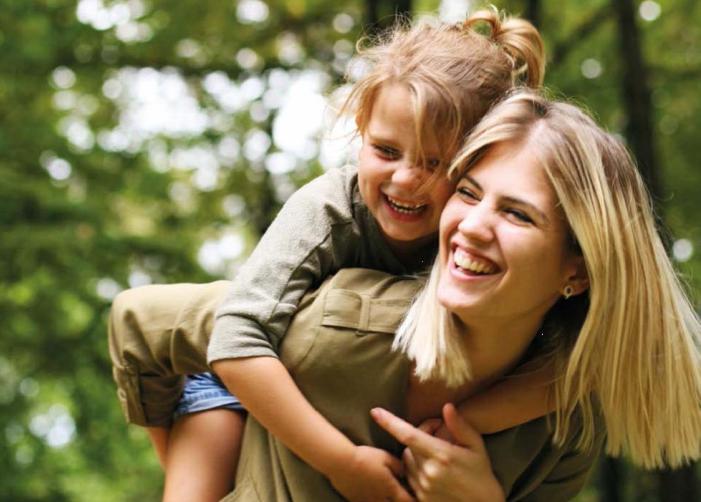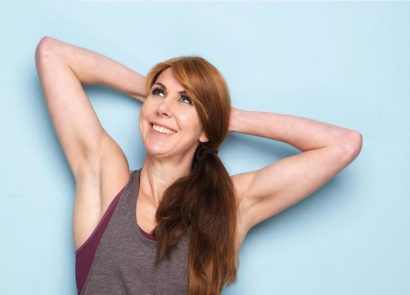From when we were children, we started copying the behaviours of the people in our lives. Our parents, school teachers, friends and in some cases, public figures, have all probably influenced us to some degree. But being a good role model isn’t just about saying your please and thank yous or waiting for the red light to turn green before crossing the street. It’s about how you move in the world and your perspective on life. And, it’s not just our children who seek out role models. Colleagues, family members and friends also look for people to model behaviours after. This gives us all the more reason to make sure that what we say and what we do reflects the values we want to project.
Leading the way
Whether it is observing how a senior colleague deals with a tricky situation in the workplace or seeing how your sibling picks themselves up after a setback, there are plenty of opportunities for us to learn from others (and for them to learn from us). “It’s not just people who are in the public eye who are role models, it is all of us,” says Dr Sue Roffey, a psychologist, academic and co-author of Creating the World We Want to Live In (Routledge, available now £19.99). “The phrase, ‘Don’t do as I do, do as I say’ simply doesn’t wash. Children, and adults, watch, listen, and learn what is expected and copy. Whether we like it or not, we are constant role models for the next generation seeking guidance.”
Embracing the positives
With that being said, it’s good to be mindful of the potential influences in life. “How we respond to figures that our children might look up to, politicians, footballers, celebrities, and what they say and what they do, makes a difference to how their values might be embraced,” says Dr Roffey. How you react to something on the news or a behaviour that you’ve witnessed, will often be referred back to by the child or adult observing you, so remember to take a quick rain-check before you blurt out a response to what you’ve seen.
Walk the talk
So, what are things that positive role models do? “Positive role models walk the talk,” says Dr Roffey. “There is congruence between what they believe and value, what they say and what they do. When a parent or carer in a child’s life deals with challenges thoughtfully, talks about their feelings and models ways to stay calm in a crisis, they are offering strategies for a resilience toolbox, showing kids and the people around them, ways to cope when things are difficult.” We go through challenges almost every day, so keeping a level head, staying optimistic and making sure that we approach situations with empathy, rubs off on others. Observing others is a hallmark of human day-to-day life, so when we look up to someone, we’re not just thinking we want to act like this person, we’re watching whether their behaviour produces a positive or negative outcome.
“When someone supports others with warmth and understanding, they are modelling empathy and helping establish positive connections,” adds Dr Roffey. “Being a good role model is not about being perfect, it’s being able to admit mistakes, learn from them, pick yourself up and start over when needed.”
Prioritise your needs
Having limits is important for all of us, but it‘s also crucial that the people around us see us sticking to our guns when times get tough. “Having boundaries is about saying no to what you don’t want, and also being able to hear and understand what others don’t want,“ says relationship expert Janet Dray. “Although this sounds very simple, it requires a level of honesty that most adults find really challenging. Many people subvert all their own needs to please others (or at least do what they imagine would please them because they don’t actually know) so that they can be happy and harmonious – except that isn’t usually the result. What happens is that we flatten all our authenticity, and hence our self-esteem.
When we live behind a smoke screen of niceness, we our lose self-esteem – it’s as if we are saying to ourselves: ‘my views don’t matter’.“ As a mum, partner and/or carer, it can be hard to say no and put limits on our time and energy, especially when it comes to the people we care for most. While we want the people around us to see and think of us as caring and selfless, putting others first doesn’t always benefit them in the long-run. In fact, it can often make us feel run-down, unfulfilled, resentful and unhappy, which in turn, affects them.
Instilling better boundaries not only benefits us, but the people looking up to us as well. Often, younger, less experienced colleagues observe older employees to see how they manage their time and workload and in parent-child relationships, children watch and learn from how their parents prioritise different things in their lives. So, next time you‘re thinking you might work late to impress your boss, or you‘re considering giving more hours you can spare to help coach your child‘s football team, pause and take a moment to think about whether or not this is going to breach your boundaries. If so, consider, would you want your child/ colleague/friend or family member to feel like they have to do this? If the answer is no, then it‘s probably best you bank that time and energy to do something which will positively enrich both of your lives instead.
4 things that good role models do
Want to employ some actionable behaviours into your day-to-day life? Trauma expert Antonia Harman (divineempowerment.co.uk) has some tips on how to be the best version of you:
1) Admit mistakes
If things aren‘t going well, talk to people about it. The solution might have been staring you in the face all along. No one can be a superhero 24/7. We all have bad days, weeks, months or even years, and that‘s OK. The worst thing you can do is suffer in silence; would you want that for other people? If the answer is no, then let other people in your life see you reaching out for help when you need it.
2) Be vulnerable
When we get honest with ourselves and others, magic happens. Sometimes all you need is a sounding board; speaking to others can help you align your thoughts and make sense of your problems. Show to others that being vulnerable can strengthen your relationships, solve problems and cultivate compassion.
3) Have a problem solving attitude
Speaking about your problems is your first step to solving them. It’s good to role model candid conversations about tough things. There is a solution to every problem, and while you might not have it instantly, you can show the people in your life that with a bit of brainstorming, it will emerge in no time.
4) Show respect and kindness
This might seem like a given, but it’s so important for people and younger children, in particular, to see examples of kindness and respect towards others. Whether that’s explaining to them why you’re helping someone out of a difficult situation or simply being kind to strangers you meet when running your errands, children learn kindness from observing positive interactions.




















